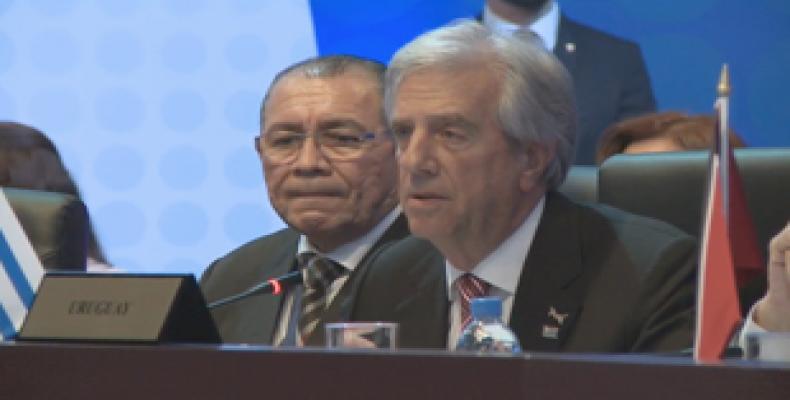Montevideo, September 9 (teleSUR-RHC)-- Uruguayan President Tabaré Vazquez will withdraw the country from negotiations on an international free-trade deal, after a vote by the ruling Broad Front to do so.
“President Vazquez took responsibility for the Broad Front's resolution (not to participate in the negotiations) and asked the Minister of Foreign Relations Rodolfo Nin Novoa to report the withdrawal of Uruguay from the negotiations of TiSA (Trade in Services Agreement),” said Minister of Tourism Liliam Kechichian after the weekly Council of Ministers meeting.
Senator and former President Jose “Pepe” Mujica commented shortly after that he would have supported Vazquez' decision which does “not give as much importance to the negotiations of TiSA as it has been given.”
The negotiations stopped bearing importance to him when the BRICs countries’ demand to be part of them was denied. “This represents the exclusion of half of humanity, which is a powerful sign,” he added. “This is another trick of the main powers like the United States to contain Chinese competition in the world economy,” said the former president, recalling that China was the main economic partner of Uruguay.
Uruguay started the negotiations of TiSA under Mujica's presidency, but Mujica's party inside the governing coalition recently started to lobby against TiSA and the negotiations under Vazquez' presidency in March.
In June, Wikileaks released 17 classified documents about the secret TISA negotiations which started in 2013 between 24 countries, including the United States and the European Union.
According to WikiLeaks, the TiSA negotiating text would impose obligations on countries “to notify and consult with transnational corporations on decisions and measures which may affect their interests.”
A month later, a similar leak showed how the TiSA would undermine “governments involved in the treaty” by promoting the interests of multinationals rather than local businesses, according to a WikiLeaks press release.


